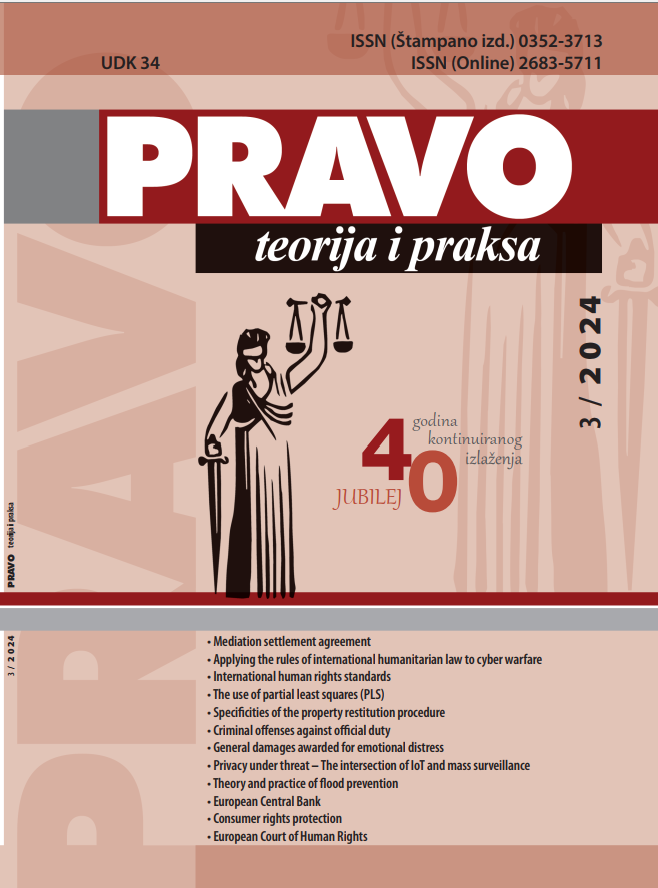Аnonymous witness statements in the European Court of Human Rights – Is it possible to achieve the right to a fair trial?
Аnonymous witness statements in the European Court of Human Rights – Is it possible to achieve the right to a fair trial?
Author(s): Bojana GolubovićSubject(s): Human Rights and Humanitarian Law
Published by: Pravni fakultet za privredu i pravosuđe u Novom Sadu
Keywords: anonymous witnesses; European Court of Human Rights; right to a fair trial; anonymous witness statements; counterbalancing mechanism
Summary/Abstract: The purpose of this paper is to stimulate reflection on the use and significance of anonymous witness statements in the practice of the European Court of Human Rights. The analysis of selected leading cases in this area will provide an overview of the development of European judicial practice regarding the fact that the right of the defense is seriously compromised when such statements are accepted in criminal proceedings. A significant number of judgments represent a setback, particularly concerning the realization of the right to confrontation, which is characteristic of cases involving statements from anonymous witnesses. In such cases, the question arises as to what counterbalancing mechanisms could compensate for the denial of the accused’s rights when the identity of the individual providing incriminating statements is concealed. The statements of anonymous witnesses have, in a way, influenced the practice of the European Court of Human Rights regarding the establishment of a legal standard that has gradually taken on the role of a corrective mechanism, maintaining the balance between opposing parties. The question is whether such a corrective mechanism for the procedural protection of anonymous witnesses can preserve the interests of both sides.
Journal: Pravo teorija i praksa
- Issue Year: 41/2024
- Issue No: 3
- Page Range: 170-182
- Page Count: 13
- Language: English

